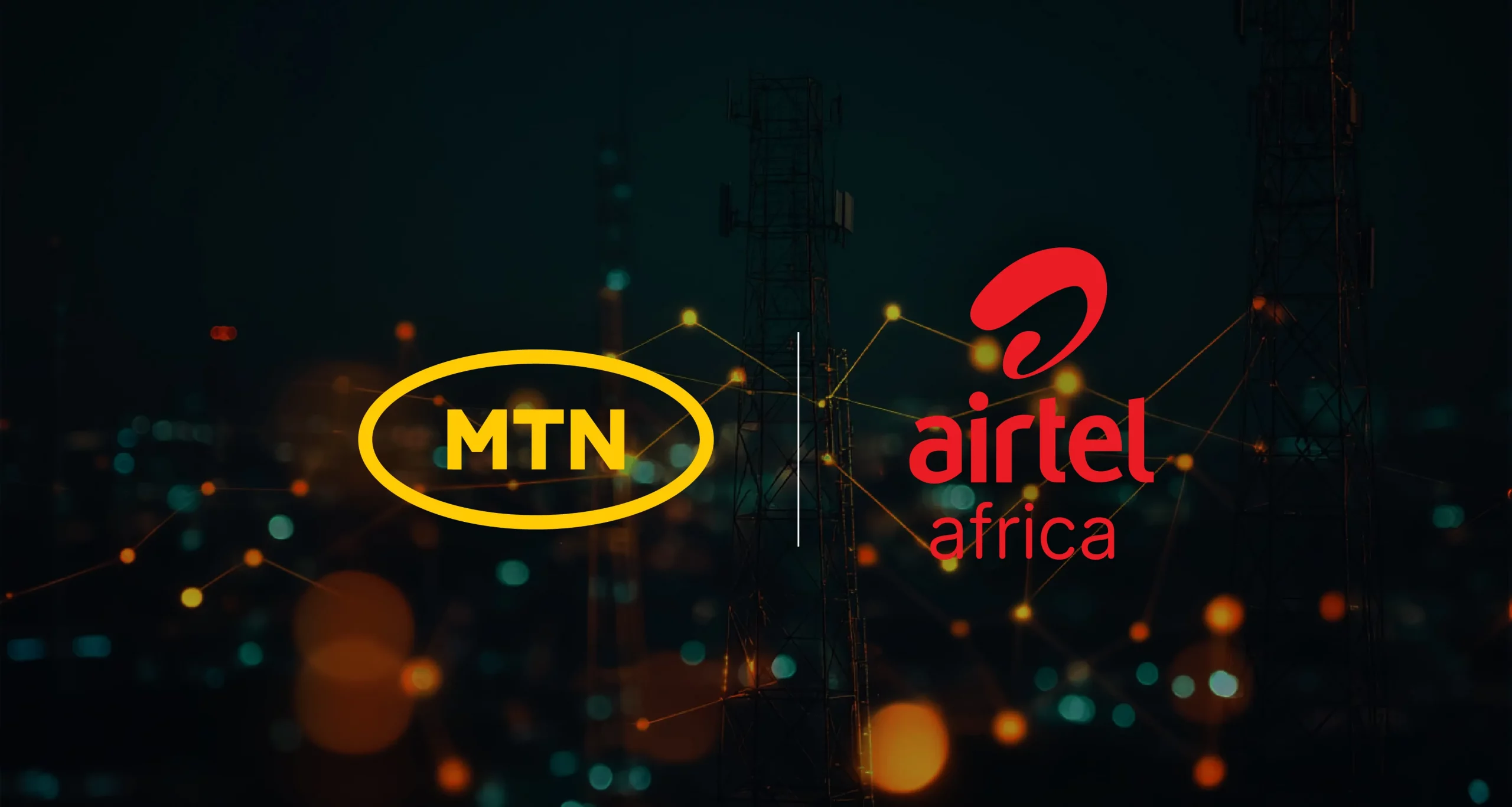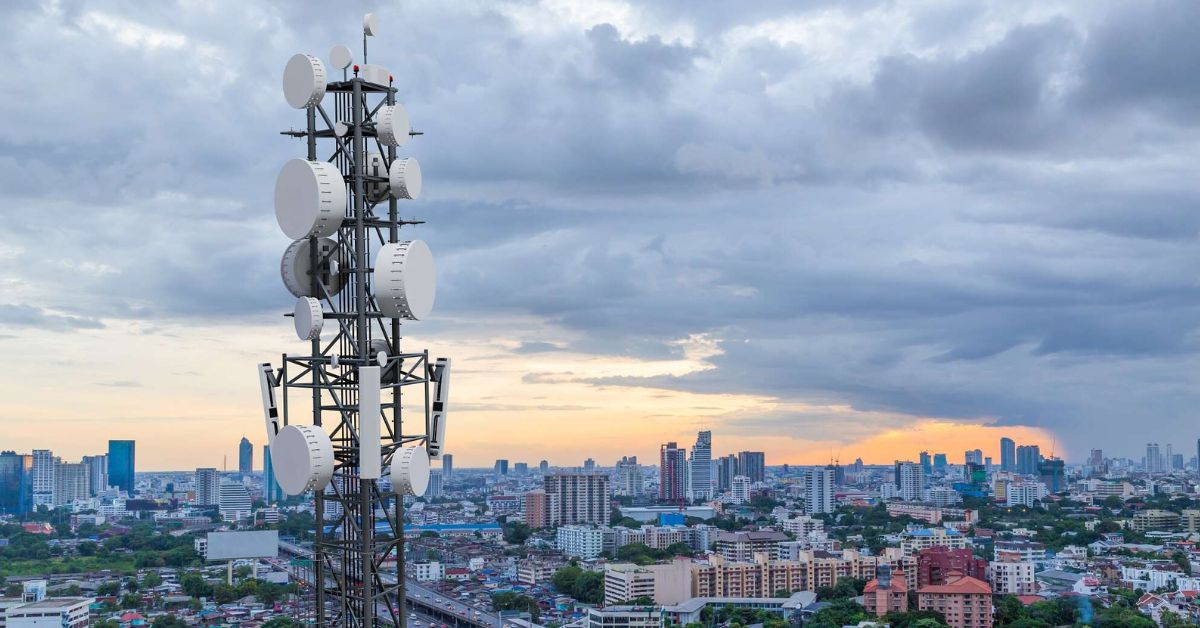This is Follow the Money, our weekly series that unpacks the earnings, business, and scaling strategies of African fintechs and financial institutions. A new edition drops every Monday.
A year ago, the depreciating naira nearly broke telco giants, MTN Nigeria and Airtel Nigeria, as foreign-exchange losses wiped out revenue growth gains. Today, MTN Nigeria has swung from a ₦514.9 billion ($362.16 million) loss to a ₦750.2 billion ($527.67 million) profit in the nine months ending September 2025, while Airtel booked $90 million in foreign-exchange gains to grow profits to $376 million from $79 million, according to financial statements.
On the surface, MTN and Airtel earned ₦5.16 trillion ($3.63 billion) in the first nine months of 2025 thanks to a 50% tariff hike and a more stable macroeconomic environment. But, beneath the headline numbers lies a story of how a stronger naira reshaped their balance sheets, reduced their dollar risks, and boosted the financial fate of Nigeria’s largest telcos.
The beginning
In 2023, the Central Bank of Nigeria (CBN) unified the country’s multiple foreign exchange windows to close the gap between the official and parallel rates of the naira. This triggered a sharp devaluation from ₦471/$ before the move to ₦1,043/$ by December 2023.
Exchange Rate Timeline
Pre-Unification
₦471 / $
Dec 2023 Low
₦1,043 / $
2025 Stability
~₦1,450 / $
The shock rippled across every sector, and telecoms bled heavily. Despite solid revenue growth, MTN reported its first-ever loss after tax, ₦137 billion ($96.36 million), since listing on the Nigerian Stock Exchange in 2019, after incurring ₦740 billion ($815.8 million at ₦907.1/$) in FX losses.
Airtel Africa also reported a $89 million loss for its year ending March 2024, after losing $1.26 billion to derivative and FX exposures, with $770 million tied to the naira’s crash.
“Both MTN and Airtel have declared significant foreign exchange (FX) losses in Nigeria, and the stress is not linked to them alone,” Gbenga Adebayo, chairman of the Association of Licensed Telecom Operators of Nigeria (ALTON), wrote in a 2024 op-ed.
By December 2023, the two companies had at least $966.6 million in foreign loans and tower contracts denominated in dollars, a burden for operators who earn primarily in naira.
Airtel’s CEO, Sunil Taldar, said at the time, “We remain committed to reducing foreign currency exposure across the Group to limit the impact of currency devaluation on our business.”
Reducing foreign exposures
Telecoms rely heavily on imported technology and equipment, from network gear to power systems. That means they need dollars. Foreign-denominated loans are often cheaper and easier to access, but they expose firms to currency swings.
For instance, a $100 million loan when the naira trades at ₦700/$ equals ₦70 billion. If the naira weakens to ₦1,200/$, that loan instantly becomes ₦120 billion, without interest.
This was the reality that crushed telcos in 2023, and both MTN and Airtel spent 2024 localising debt and renegotiating tower contracts.
By March 2025, Airtel Africa had paid down $702 million in foreign-currency debt. “We continued with our debt localisation programme aimed at reducing our foreign currency debt exposure with around 95% of our OpCo debt (excl. lease liabilities) now in local currency, up from 89% a year ago,” the company said in its latest financial statements.
MTN also cleared its $400 million letters of credit. “Foreign currency exposure is within manageable levels following the settlement of outstanding US dollar letters of credit,” CEO Karl Toriola said in the company’s latest financial statements.
As a result, MTN’s net debt dropped from ₦719.5 billion ($506.07 million) in December 2024 to ₦171 billion ($120.28 million) by September 2025, with 70% now naira-denominated.
“The reduction in net forex losses, down 99.4% year-on-year, was a key contributor (to profitability), thanks to the relatively stronger naira during the period,” Toriola said on an investor call.
Both companies also renegotiated tower lease contracts with operators like IHS and ATC, reducing the dollar-linked portions of their expenses and boosting energy efficiency.
MTN has extended its tower master lease with IHS until 2032, covering 13,500 sites. This was expected to save between ₦75 billion ($52.75 million) and ₦85 billion ($59.79 million) in 2024 alone. Annualised savings could reach ₦110 billion ($77.37 million).
“On the operating expenses side, growth was 16.4%, which was below the prevailing inflation rate,” said Modupe Kadri, MTN’s CFO, on the company’s investor call on October 31. “This reflects the positive impact of a stronger naira savings from a revised tower lease arrangement agreement and continued initiatives to enhance underlying expense efficiency.”
Airtel also renewed similar tower deals with ATC and IHS covering 8,300 sites across Nigeria, Uganda, Kenya, Zambia, and Niger, further cutting its dollar-linked costs.
Gains
The road ahead
Higher tariffs, up roughly 50%, and a more stable economy have helped telcos recover. Data usage has surged to record highs despite rising costs.
MTN made ₦1.98 trillion ($1.39 billion) from data alone in the first nine months of 2025, while Airtel Africa’s data revenues of ₦1.65 trillion ($1.16 billion) have overtaken voice as its biggest earner.
Telcos are now on track to make more money than ever. MTN is set to become a ₦5 trillion ($3.52 billion) revenue company by year-end, and Airtel Africa has raised its capex guidance to $900 million from $750 million.
However, their fortunes remain tied to the naira. The currency has hovered between ₦1,400 and ₦1,500 to the dollar for most of 2025, a range that has so far provided stability.
“Our largest exposure is to the Nigerian naira, where a similar 1% USD movement would result in an estimated $13m-$14m impact on foreign exchange (excluding derivatives),” Airtel noted in its latest financials.
MTN’s Kadri added: “The good news is that based on the current naira levels, we have already known our Q4 obligations. So there is really no risk in terms of having a Q4 spike, even if anything happens to the naira.”
Exchange rate used: ₦1,421.73/$










